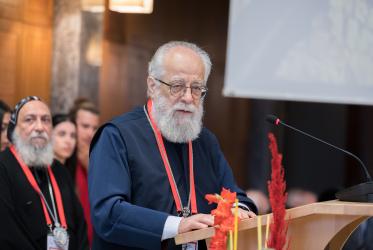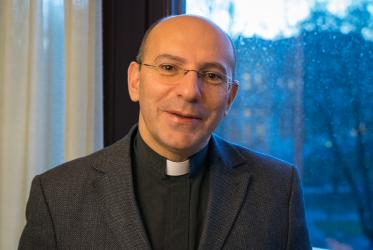Displaying 1 - 20 of 23
Promoción de la dignidad humana a través del arte
07 September 2022
Promoting human dignity through art
06 September 2022
In Lebanon, “without peace there is no justice”
21 July 2021
Un ecumenista palestino esperanzado, pero no optimista
10 December 2020
Palestinian Christian peace worker yearns for courageous leaders
10 December 2020
A hopeful, but not optimistic Palestinian ecumenist
09 December 2020











